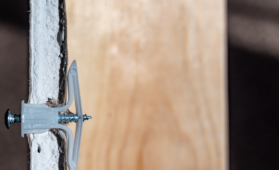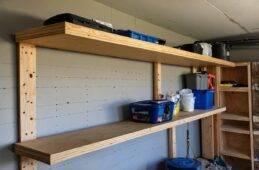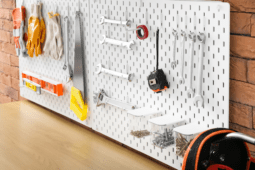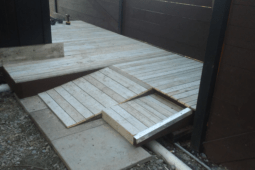5 Easy Ways to Improve Your Inner DIYer
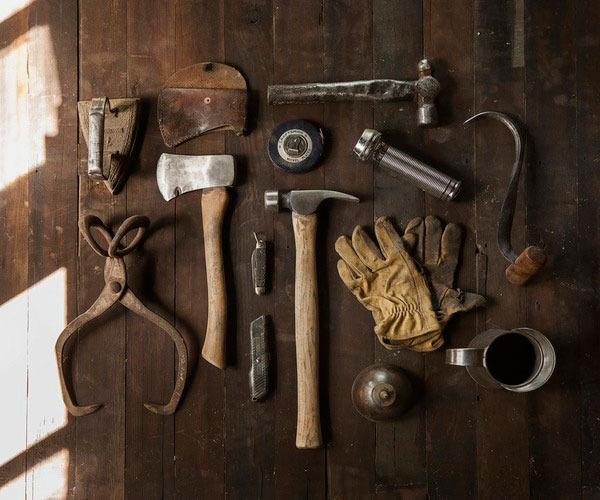
When you're new to the world of DIY, starting even the smallest of projects can be a daunting task. How much money will it cost me? How much time will I waste? Do I even know what I'm doing? Questions like these can easily deflate a well planned weekend of hard work when you're not comfortable with yourself and your abilities.
The secret to the rising popularity of DIY-ing lies within the drug-like reward factor of a finished project. Once you get started, you'll find that you cannot get enough of that “job well done” feeling. But getting to the reward requires a lot of self motivation and discipline. When you can conquer your fears of screwing up and wasting your precious time, you will find that making things for yourself doesn't take much effort at all. Joy has a way of making challenges a heck of a lot of fun!
Next time you find yourself in a challenging spot and you're close to calling it quits, remember 5 DIY Zen Tips to help get you back on track.
1. Fail Faster You may have heard this before, and a lot, but failing is the biggest catalyst for growth. Every time you mess up, it's an opportunity to challenge yourself to do better the next time. Did you get the wrong pipe size for the kitchen drain? You'll learn to double check your measurements before head out for supplies. Thought you didn't need that one tool to fix your problem? Now you own three of them. The faster you give into failure, see it as great opportunity, the faster you grow.
/https://assets.manmadediy.com/photos/30993/best-fathers-days-gifts-apronoriginal.jpg)
2. Wear a Uniform You've probably heard stories of authors who like to eat the same thing everyday for lunch or an artist that can only paint when listening to a specific kind of music. These “quirks” are a person's uniform; they help to get into the working mindset. If you find that you can't seem to focus on a project as long as you'd like because of non-work distractions, try on a uniform of some sort. Maybe your uniform is a favorite song, familiar reading glasses or a well-used pair of work pants. For me, it's my work apron. I don't always need it but it kicks my brain in gear to get stuff done. Plus, there are no pockets for a distracting phone in my apron!
3. Break Things Whenever someone asks me how I know so much about so many random things, I usually reply with, “I love to break stuff.” And it's totally true. I love to pull things apart, to dig and inspect every little thing–even if I have no idea what the heck I'm looking at. Do I break some really expensive stuff? Absolutely. It's certainly not fun to do that, but you can bet I won't do that again! Every broken thing is a lesson learned and a step further away from risk aversion. When you are comfortable with breaking things then you're comfortable with taking risks and trying new things. You can't drive a car or wash dishes without the risk of breaking something–so you've come that far–keep going! Maybe dissemble your stereo or try to replace your breaks and rotors on your car. Take it all apart and put it back, just to see what happens. You'll be surprised to see how so many unrelated things are all built the same way! Pretty soon you'll be tuning engines and programming computers at the same time! The true secret to success in doing anything yourself is eliminating the fear of breaking things.
4. Time Boxes Letting time slip away from you on a weekend project is easy to do. Sometimes, estimating the time a project could take is enough to keep you from starting it at all. So, if you ever cannot stop obsessing over a new project you have in mind give yourself a set amount of time to at least get started on it. Want to build a new bookshelf? Give yourself an hour to mark and cut the boards you need then give yourself another hour tomorrow. Avoiding a project because it will take too long is a great way to never get anything done.

5. Ask for Help This one should go without saying. Go ahead and get yourself comfortable with asking for help from experts, the internet or people who are just barely more familiar with something than you are. If anything, you create a climate for brainstorming and collaboration that will ultimately yield better results. Find a stack of books you trust on the subjects you like or a YouTube channel that provides steady instruction. Sometimes a phone number of a wise, close friend can be the most valuable tool in your box.
Hopefully, these five things will inspire you to keep going and improving yourself and your work. Pretty soon, you'll see every need in your home, card (or your life, really) as a new challenge that's yet to be conquered.


